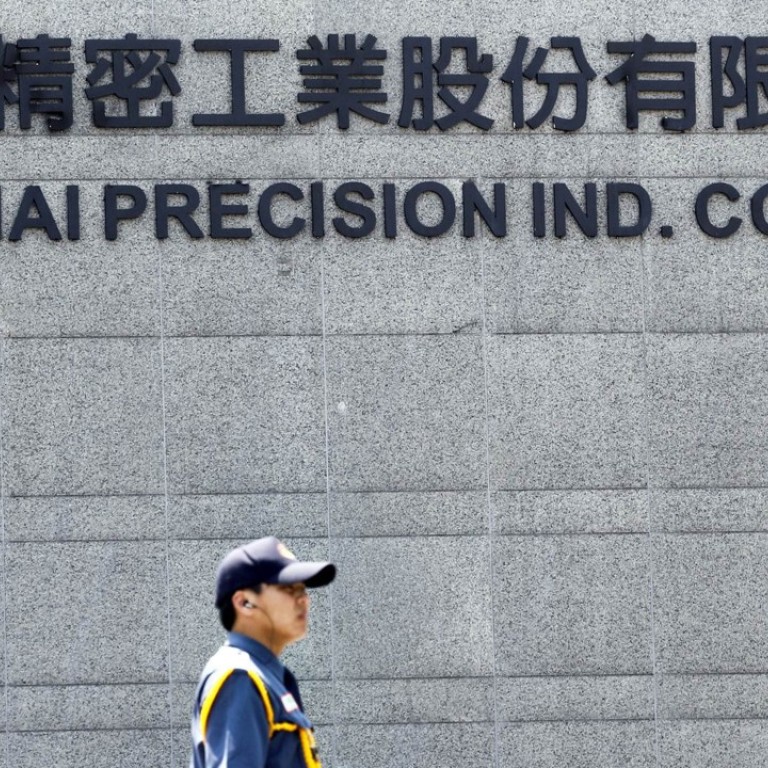
Foxconn to spend US$5.7 billion in Nanjing on world’s biggest smartphone assembly hub
Hon Hai Precision Industry Co., the world’s largest contract manufacturer for consumer electronics, said it will invest 37.5 billion yuan (US$5.74 billion) to expand its facilities in Nanjing city, turning it into the largest smartphone assembly on the planet and a hub for research and development.
The Taiwan company, which also operates under its trade name Foxconn Technology, said its deputy general manager Zheng Naijian signed a contract on September 12 with Nanjing’s deputy mayor Liu Yi’an in the city, whereby Hon Hai will invest to produce liquid crystal displays (LCDs) for smart televisions, research and development, as well as logistics, according to a company spokesman.
“The deal with Nanjing eases some concerns that Foxconn will reduce its investment in China after its billion-dollar investment in the United States,” said Li Yi, a researcher at the Shanghai Academy of Social Sciences internet Research Centre. “The company is trying to balance its footprint between the world’s two largest countries.”
Foxconn announced in July a plan to build a US$10 billion factory in the US state of Wisconsin to produce LCD monitors.
A US factory could create between 30,000 and up to 50,000 jobs, which would help Trump’s White House score political points with his support base, presenting them with evidence that his administration is delivering on its promise to create jobs at home, and to bring global assembly work back to America.
Still, nowhere are the company’s fortunes more intricately tied than in China, where up to 2.33 billion mobile phones are in circulation in the world’s most populous nation, according to an estimate by the Internet Society of China. One in every four phones used in China is classified as a smartphone, making the business of producing smartphones particularly vital for Foxconn, whose clients include not merely Apple but also its direct competitors Huawei and Xiaomi.
Several of Foxconn’s largest contract assemblies are already in mainland China, where the company employs as many as 1 million staff to put together personal computers, laptops, Apple’s iPads, iPhones and consumer electronics of all sizes and specifications.
The company’s US investments are aimed at “backing Trump’s government” and its agenda to create American jobs, whereas the scale and nature of the China investment are “for the market,” said IDC’s China managing director Kitty Fok. “Most phones are produced in Asia because of the proximity to large population centres such as China, India and Indonesia.”
Foxconn’s smartphone hub will be engaged in the research and development of the back-end modules for mobile devices. A separate part of the facility will conduct research into so-called fifth-generation telecommunications (5G) standards, which theoretically can transmit and receive data 20 times faster than current 4G phones. The LCD portion of the hub will become a centre for developing and producing large-format high-definition televisions, according to the company.
“The company always gets the support of local governments, such as getting access to cheap land and low taxes,” said Li. “Local governments usually welcome Foxconn’s investments. Some of the investments in China are a display for the support by company founder Terry Gou to local authorities.”

